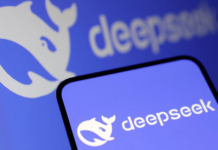AI technologies are better equipping companies to make AI-powered predictions of customer behaviours and preferences at scale and transforming the world of work.
To adapt but to emerge stronger, the 2020 pandemic that was a catalysing moment for enterprise artificial intelligence (AI), has forced companies to go digital faster and use AI. The shift has accelerated AI-powered predictions, which are helping companies to sell smarter, drive stronger engagement, scale customer support and personalise commerce experiences.
AI-powered predictions will be more important in the year 2021. AI and automated machines, based on historical data and adoption, are learning to provide forward-looking estimates and answers that map to specific business outcomes. More than 80 billion AI-powered predictions are delivered every day by these technologies for customers.
This scale of adoption is massive, and particularly benefits those that adopt AI as a core business strategy and means to better understand and engage customers. It was found by International Data Corp (IDC) that global spending on AI will double over the next four years from $50 billion in 2020 to $110 billion in 2024.
AI technologies, which work behind the scenes, are better equipping companies to make AI-powered predictions of customer behaviours and preferences at scale, transforming the world of work as we know it.
The ways in which AI-powered predictions help businesses to operate and support their customers more effectively are:
Highly personalised conversations with customers: As a greater percentage of customers began online shopping when the pandemic hit, many companies needed to drive stronger engagement. Personalised communications had never been more important for all sizes of businesses to meet their customers’ expectations and sales growth. Companies, with the help of AI-powered predictions, have been able to shift their focus on the right customer conversation with targeted email campaigns, increase traffic to their online platforms, and respond many times faster to trends customers are interested in.
Improved forecast accuracy of cash flow: Where industries such as financial services have experienced growing delays in customer payments and difficulty to forecast short- and long-term cash flow, AI technologies have helped keep businesses running while being empathetic to the challenges their customers were facing. Organisations, with the help of AI technologies, have been able to more accurately make AI-powered predictions faster in terms of cash flow as well as respond to customer queries quicker.
Keeping customers happy: Meal delivery services have faced huge spikes in customer requests in the context of lockdowns and social distancing. AI-powered predictions have assured businesses and customers alike by helping customers track their orders or packages and helping businesses to deal with rising case volumes, report any issues with delays or damage and get a credit or refund. This has also boosted customer service scores by keeping customers happy.
Empowering sales teams to be more effective: As an informed and empathetic advisor, the value of a good salesperson, has only grown during the pandemic, yet the time they’re able to dedicate to gathering helpful insights is decreasing. This explains why more teams are automating repetitive tasks to enable reps to spend more time developing trusting relationships with customers and selling. Sales teams, with AI-powered predictions, are becoming more empowered to effectively prioritise leads, determine what action to be taken on accounts, and more rapidly log sales data and customer notes.
The rise of automation: Many companies have made it clear that AI is here to stay as the pandemic proved that we’re at an inflection point with AI adoption. Automation of routine tasks is allowing employees to focus on more strategic work just as these technologies are helping organisations to be more efficient and better serve their customers. Employees, with the best AI tools that help in doing AI-powered predictions, don’t have to be a data scientist to take advantage of these capabilities. They can implement quickly and begin innovating fast using clicks, not code.
At a time when many businesses are doing more with less, investing in AI tools can boost resilience. By creating new products, services, and jobs, their potential to transform our lives and economies is enormous. By encouraging employees to learn about and train these technologies, we can cultivate a workforce culture of continual development in line with business needs.
Also read: Transformation of BFSI industry with cloud and AI combo
Do Follow: CIO News LinkedIn Account | CIO News Facebook | CIO News Youtube | CIO News Twitter






